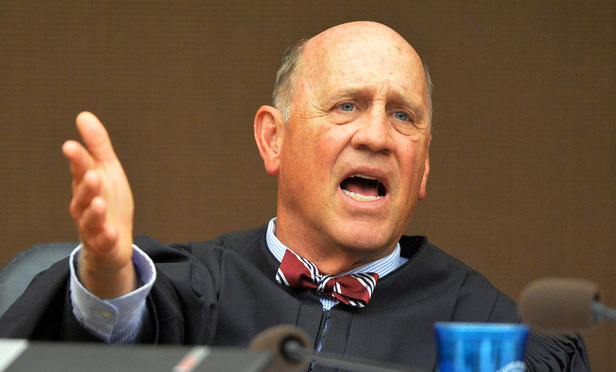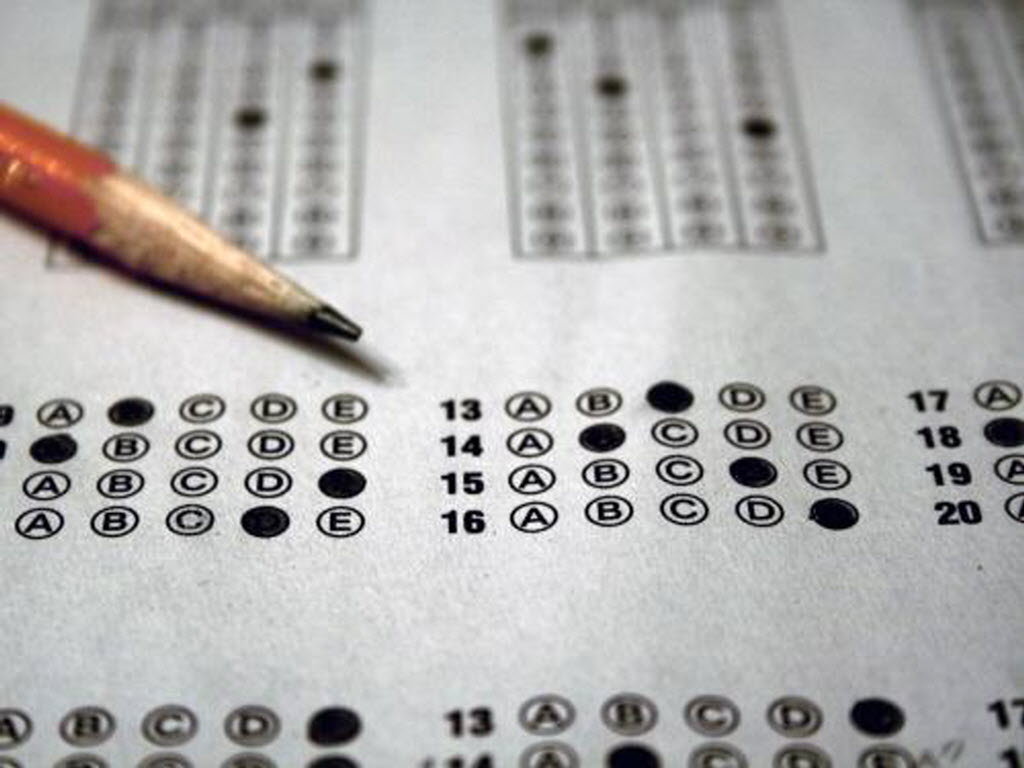On April 1, educators from the Atlanta Public Schools were convicted of racketeering and various other crimes for cheating on standardized tests. Murmurs about corruption started well over a decade ago; journalistic reports led to state investigations which led to a blue ribbon commission specifically tasked with examining cheating at APS. The original indictment, handed down in 2013 by a Fulton County grand jury, charged 35 APS educators under the Racketeer Influenced and Corrupt Organizations Act, commonly referred to as the RICO Act. Passed in 1970, the RICO Act was designed to combat the mafia and prosecute organized criminal activity.
Facing such steep charges, the path of least resistance for most educators was to take a plea deal. 21 educators took deals with modest terms: short-term house arrest or a weekend in jail, a moderate fine of $1,000-2,000, and community service. Admitting guilt avoided a trial where the odds were not in their favor.
The other 12 educators did not go down without a fight. Judge Jerry Baxter, a judge in the Superior Court of Fulton County, oversaw the case. After a lengthy 5-month trial, all but one defendant were found guilty. Baxter offered plea deals if they would admit their guilt and apologize, and the courtroom became heated when only two defendants accepted the offer. “This is the time to search your soul,” Baxter said. “It’s just taking responsibility. … No one has taken responsibility that I can see.”
Reverend Bernice King, daughter of Rev. Martin Luther King Jr. and Coretta Scott King, petitioned Judge Baxter for a sentencing of probation or alternative sentencing as opposed to jail time. In a statement with the King Center, she voiced her concerns: “There are people who have committed far more egregious offenses that have severely harmed humanity who have not served such lengthy prison sentences.”
Those who did not accept the plea deals received between 5 and 20 years, large fines ($5,000-25,000), and thousands of hours of community service. The three top administrators initially received 20 years with at least 7 in prison, but Baxter later modified those terms to 10 years with 3 in prison. However, the legal battle is far from over as appeals are expected.
The appeals will focus on two aspects of the trial – the sentencing and Judge Baxter. Emma Brown discusses how Baxter’s harsh sentences overstep existing precedent:
People who commit academic fraud, experts say, usually face little more than a wrist slap — a fine or a loss of professional licensure. But Baxter handed down relatively lengthy prison sentences — up to seven years, longer than some people get for violent crimes — in a case that has drawn widespread attention as the nation debates the amount and importance of standardized testing.
Judge Baxter expressed frustration with the defendants and their attorneys, especially near the end of the trial. Nsenga K. Burton, Ph.D. and editor-at-large at The Root, noticed a certain racial dynamic in the trial – every single defendant and their attorneys were black, and almost all were treated with extreme hostility: “I was sickened by the display of theatrics by this judge, who was yelling at the defense attorneys–-even those accepting the plea—never mind the defendants.”
At one point during sentencing, a defense attorney for Sharon Davis Williams asked to recuse the judge and was told to sit down or be sent to jail. Judge Baxter was described as hostile and angry, and discussed the scandal in hyperbolic terms.
Judge Baxter on the #APS sentencing: pic.twitter.com/z3m8VStjik
— Atlanta Journal-Constitution (@ajc) April 14, 2015
Many of the defendants were acknowledged as great educators. Dana Evans, a former principal at Dobbs Elementary, had a great reputation as a rising star. Baxter described her conviction as “probably the biggest tragedy of all of them … And I want to tell you I consider you a wonderful educator, and that is what makes it so sad.” Evans refused to admit guilt, claiming she met her testing goals and had a zero percent erasure analysis, the test used to identify cheating. She said she was disappointed at how positive improvements in some of the schools were ignored: “I am most disturbed with the lasting effects of this diminished view of students living in poverty, the images of failure we seem to propagate daily.” Beverly Hall, the former APS superintendent, was named Superintendent of the Year by the American Association of School Administrators in 2009. Unfortunately, Dr. Hall was unable to stand trial and passed away on March 2.

None of this is to suggest that their cheating was a victimless crime. A study completed by Dr. Tim Sass at Georgia State’s Andrew Young School of Policy Studies was provided to APS and made available to the public. They found the negative effects were “moderate and not uniform,” but substantial for reading and English Language Arts. The students were cheated out of a quality education in certain subjects, the equivalent to “one to two times the difference between having a rookie teacher and one with 5 or more years of experience in a single year.” Black students were uniquely affected, as 98 percent of the students having the largest erasures were black, in comparison to the 75 percent black student population. APS has started intervention and recovery programs for affected students, but those students’ progress is still only quantified by one metric – standardized test scores.
While Baxter viewed the defendants as individuals with malicious intent, others point to the broader system of public education in the United States. In her statement, Bernice King argued the “educators were themselves the victims of a corrupt education system.” Teachers were under “tremendous pressure” to ensure they have adequate test scores, “even to the extent that their jobs, their livelihoods may be threatened.” As described by one APS principal, the school system created a “toxic culture … where all that mattered was test scores, even if ill-gotten.” Their “primary focus . . . became meeting targets instead of focusing on the needs of the students.”
“Atlanta is just the tip of a nationwide test cheating iceberg,” said Bob Schaeffer, public education director for the National Center for Fair & Open Testing. When educators’ job security and salary are connected to standardized test scores, some degree of corruption is expected. He describes the scandal as a “totally predictable response … The more pressure in terms of rewards and sanctions associated with test scores, the more people cross the ethical line.”
The standards-based education reform created by No Child Left Behind and other state initiatives will always face challenges from educators. The Government Accountability Office stated that officials in 40 different states had reported cheating allegations in the last two years and officials in 33 states could confirm at least one instance.
But cheating is not the only form of backlash to standardized testing. In New Jersey, tens of thousands of students, nearly 15 percent of 11th graders, skipped their Common Core end-of-the-year exams. The testing industry is threatened by cheating, and testing-giant Pearson has even gone so far as to search students’ social media to find evidence. Unfortunately, the United States public schools have declined on nearly every test since its implementation.
Nsenga Burton discusses the connection between the APS trial and the broader use of standardized tests:
If we really cared about the children, wouldn’t we be more mindful of class size, resources, teacher qualifications, national ranking and policies like “No Child Left Behind” that handcuff teachers and administrators to standardized test scores that don’t measure much of anything useful? There’s a reason that Ivy League institutions are moving away from using standardized testing as a requirement for admission. With this APS scandal, we now have a concrete example of why this type of measurement, which is also used for promotion and merit-based raises, is troublesome.
The day after Judge Baxter gave out sentences, standardized testing began at APS. Clara Totenberg Green, an APS teacher, discussed her frustration with the focus of the trial: “What we’re not talking about is the massive and aggressive standardized testing culture that the educators functioned within.” She views the high-stakes testing model as bad for education, her experiences ranging from students vomiting to one student nervously scratching his face until it bled the night before the big test. Green points out that Georgia focuses too much on test scores and ignores basics like funding (the state dropped from 26th in the nation in spending per student in 2002 to 35th in 2012, despite a 20 percent increase in low-income children during the same time period).
As public schools throughout the country finish up their rounds of standardized testing, this week marks the last of the semester at the Atlanta Public Schools. Test scores will not only influence whether students are able to move on to the next grade, but also whether educators will receive a raise or keep their job. What many APS educators did was difficult to justify, but it must be put in context – cheating is an inevitable byproduct of a system that pays and fires teachers based on performance. The use of the RICO Act along with Judge Baxter’s harsh sentences sets a dangerous precedent for the rest of the country. Treating these educators like Baxter did – akin to organized criminals – will not address the system that drove them to cheat in the first place.
– By Robert Galerstein
Photo Credit: Atlanta Journal Constitution


